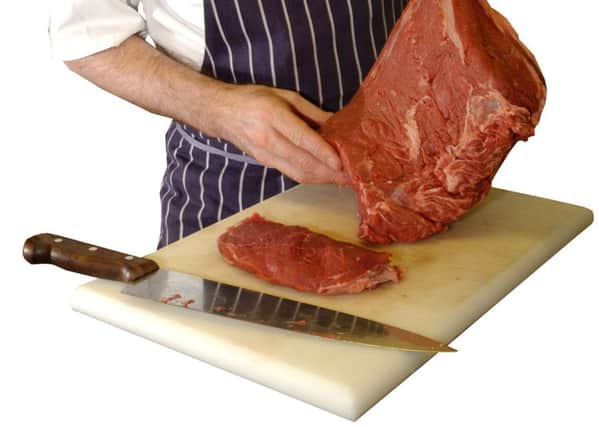Ilona Amos: It’s time to reduce our red meat consumption


I like a juicy steak or a bacon sarnie as much as the next person. Yes, I know, medical advice recommends not overdoing it on the meat, especially the red kind, and instead heaping your plate with all things green and leafy. I do try, though as a Highlander it would be a good deal easier if tatties could be included in the recommended five-a-day.
But a host of recent studies is making the seemingly insatiable appetite for flesh much harder to swallow. A new Scottish study reveals that meat eaters are devouring ever-increasing swathes of our dear green place at an alarming rate.
Advertisement
Hide AdAdvertisement
Hide AdGlobal population growth has meant larger and larger areas being turned over to agriculture in recent decades. However, research by Dr Peter Alexander, of the University of Edinburgh and the Scottish Rural College, shows rising demand for meat and dairy products is now the key driver of changes in land use, particularly in emerging economies such as China.
Their analysis of land use around the world shows dietary changes have become the most important factor in the expanding acreage given over to agriculture.
The international science community has stated that climate change is “irrefutable”, and we are already witnessing the evidence of extreme weather conditions in many countries. At the same time, clear links exist between dining on red and processed meat and a raised risk of heart disease and cancer.
The fact that experts say the livestock industry produces more climate-warming greenhouse gas emissions worldwide than all cars, planes, trains and ships combined should be enough to make that burger stick in your throat.
So it’s not just our own health we are gambling with when we make our menu choices. The very survival of our world may depend on the food we put on our plates.
An entirely plant-based diet has been shown to have the lowest carbon impact, with vegetarian, including dairy and eggs, coming a close second.
Pescatarianism is the next best thing, though concerns remain about fish stocks and the impacts of intensive aquaculture.
Since it is probably unreasonable to expect all fellow earthlings to turn vegan overnight, perhaps there are other, more palatable steps we could all take to lessen the damage we are inflicting on the environment – and possibly at the same time helping safeguard food supplies into the future.
Advertisement
Hide AdAdvertisement
Hide AdMaybe we could switch to the new “climatarian” diet, which has been designed to help meat eaters cut their carbon footprint. Its inventors also claim it could help tackle world hunger.
Devised by the social network Climates, the eating plan recommends moving to foods that require less intensive production, while also implementing measures to cut food waste and improving distribution.
Beef and lamb have about five times more environmental impact than pork and poultry because ruminant animals – cows, sheep, goats and deer - need more energy-intensive feed, use more land and produce more manure than pigs or chickens. Food ferments in their four stomach digestive system, so they burp methane, a potent greenhouse gas. Raising animals also uses more water than growing arable crops.
According to Climates, replacing red meat with pork and poultry in everyday meals can cut a tonne of carbon dioxide from your annual carbon footprint – equivalent to driving 3,500 miles a year.
In the meantime we can all do ourselves and the planet a favour by taking a leaf out of our grandparents’ books and ration our carnivorous meals.